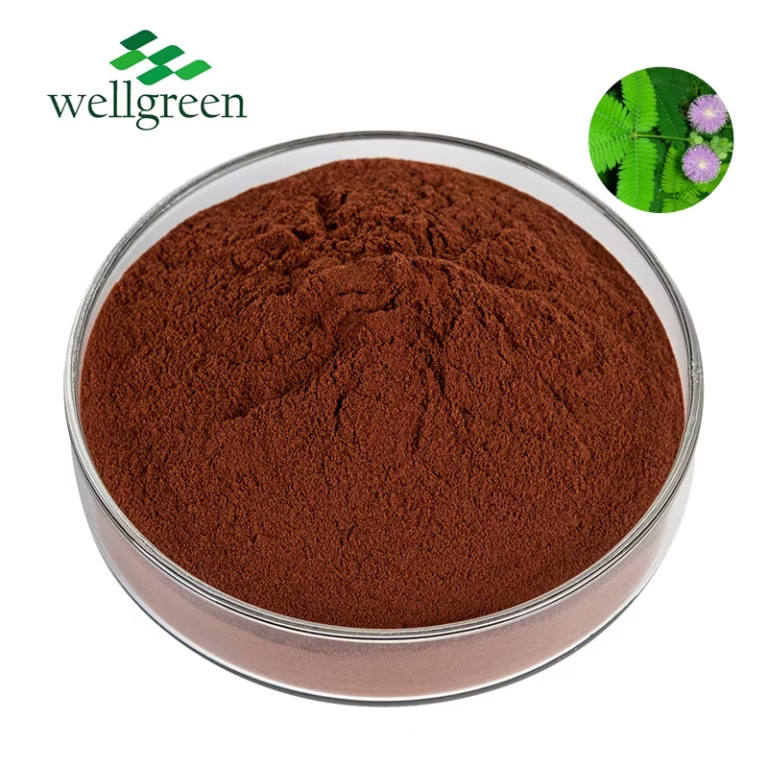
The root of this Amazonian plant, commonly known as quebracho blanco, have been utilized for generations in indigenous medicine across the Americas.
Ethnobotanical studies demonstrate the efficacy of M. tenuiflora preparations in treating a diverse range of ailments, including infections.
Locals employ the plant material in multiple forms such as teas to address illnesses.
Some key uses of M. tenuiflora include antimicrobial activity, and it is also believed to possess sedative properties.
Comprehensive Profiling of Mimosa tenuiflora Root Bark Extracts
This study focuses on investigating the phytochemical profile of Mimosa tenuiflora root bark extracts. The extraction methods employed involved various solvents, including ethanol. The resultant extracts were then subjected to a battery of analytical techniques such as thin-layer chromatography (TLC) to characterize the predominant phytochemical molecules. Preliminary results reveal the presence of a diverse of secondary metabolites, including flavonoids, which are known for their therapeutic properties. This comprehensive phytochemical analysis aims to provide valuable insights into the benefits of Mimosa tenuiflora root bark as a source of herbal remedies.
Traditional Uses and Potential Medicinal Benefits of M. tenuiflora Root Bark
M. tenuiflora, a tree renowned for its remarkable root bark, has been used in traditional medicinal practices for epochs. Indigenous tribes have long understood the medicinal properties of this powerful resource. The root bark is customarily processed and applied to treat a variety of ailments, including digestive issues.
Contemporary research is initiating to uncover the efficacy of M. tenuiflora root bark in offering medicinal benefits. Studies have revealed that certain constituents present in the bark may possess anti-inflammatory properties, affecting its potential to combat a more info wide array of diseases. Additionally, preliminary research suggests that M. tenuiflora root bark may also possess cognitive-enhancing effects, though more thorough studies are required to validate these findings.
Pharmacological Activity of Mimosa tenuiflora: A Review of Root Bark Studies
Mimosa tenuiflora, commonly referred to as the jurema shrub, has a rich history of traditional medicinal application in South America. The root bark of this species is particularly valued for its diverse pharmacological properties. Numerous researches have explored the potential benefits of M. tenuiflora root bark, revealing a range of constituents with promising biological influence.
- One aspect of particular attention is the analgesic efficacy of M. tenuiflora root bark extracts.
- Early findings suggests that these formulations may regulate the inflammatory response, potentially providing comfort from multiple inflammatory disorders.
- Moreover, studies have suggested that M. tenuiflora root bark may possess free radical scavenging characteristics, which could offer benefits to human health by reducing oxidative stress.
The multifaceted nature of M. tenuiflora root bark ingredients and its capabilities for therapeutic uses warrant further investigation. As research progresses, a more comprehensive understanding of the pharmacological activity of M. tenuiflora root bark may emerge, possibly leading to the development of novel and effective healthcare interventions.
Isolation and Identification of Pharmaceutically Active Compounds from *M. tenuiflora* Root Bark
This research focuses on the extraction of pharmaceutically active molecules from the root bark of *M. tenuiflora*. Numerous extraction methods, including organic liquids, will be employed to obtain a variety of extracts. The analysis of these extracts will involve assays like chromatography and chemical analysis. The pharmacological effects of the isolated substances will also be investigated using in vitro systems.
The objective of this research is to identify and characterize effective molecules from *M. tenuiflora* root bark with potential uses in medicine.
Exploring the Anti-inflammatory and Antioxidant Properties of Mimosa tenuiflora Root Bark
Mimosa tenuiflora, commonly known as the Horse tree, is a species native to arid regions. Recent research has focused on its {potentialbenefits for human health, particularly concerning its cytoprotective and free radical scavenging properties. The root bark of Mimosa tenuiflora is a rich source of bioactive constituents such as flavonoids, which have been shown to exert potent effects against inflammation.
- Studies have demonstrated that extracts from Mimosa tenuiflora root bark can significantly reduce the production of inflammatory molecules in both *in vitro* and *in vivo* models.
- Furthermore, these extracts have exhibited notable antioxidant effects by trapping harmful free radicals, protecting cells from dysfunction.
These findings suggest that Mimosa tenuiflora root bark holds promise as a {naturalsupplement for various inflammatory and oxidative stress-related conditions. However, further research is needed to fully elucidate its mechanisms of action and optimize its therapeutic use.
